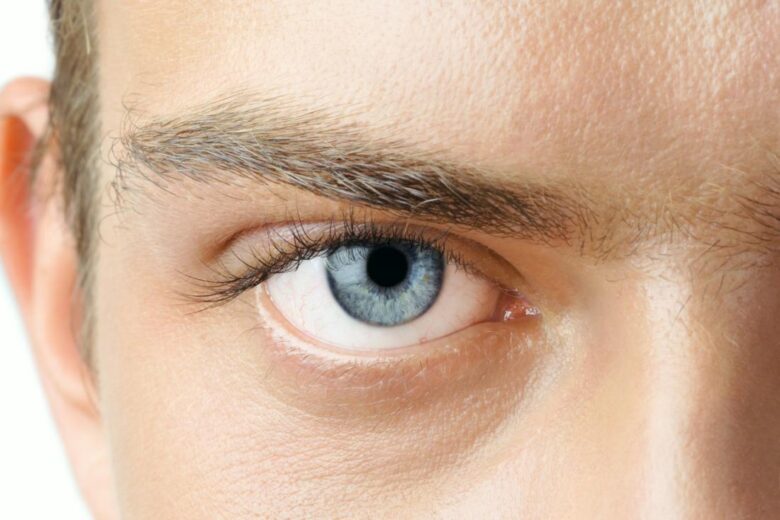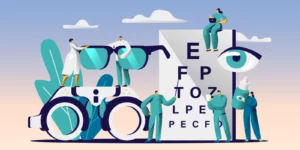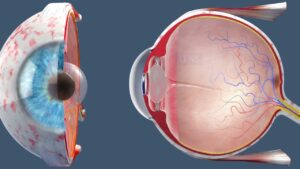Retinal damage is a condition that affects the retina, a vital part of the eye responsible for transmitting visual information to the brain. This condition can cause vision loss and potentially lead to blindness if left untreated. Recognizing the early signs of retinal damage is crucial for timely intervention and prevention of further deterioration. In this article, we will explore the various aspects of retinal damage, including its causes, symptoms, the importance of early detection, prevention strategies, and treatment options.
Understanding Retinal Damage
The retina is a complex and vital component of the eye, playing a crucial role in our ability to see. This thin layer of tissue is composed of several layers of cells, each with a specific function in the process of vision. The photoreceptors, including rods and cones, are responsible for capturing light and converting it into electrical signals. These signals are then processed by other retinal cells before being transmitted to the brain via the optic nerve.
Retinal Damage Symptoms is a condition that can have a significant impact on vision if left untreated. Recognizing the early signs of retinal damage and seeking prompt medical attention is crucial for preventing further deterioration. Regular eye examinations, adopting a healthy lifestyle, and considering preventive measures can also contribute to maintaining retinal health.
Furthermore, the health of the retina is closely linked to the overall health of the body. The retina receives its oxygen and nutrients from a network of blood vessels known as the retinal vasculature. Any disruption to this blood supply can have detrimental effects on the retina, leading to potential damage and vision loss.
What is Retinal Damage?
Retinal damage encompasses a wide range of conditions that can impact the structure and function of the retina. This damage can manifest in various forms, from minor changes in vision to severe vision impairment or even blindness. It is essential to address retinal damage promptly to prevent further deterioration and preserve vision.
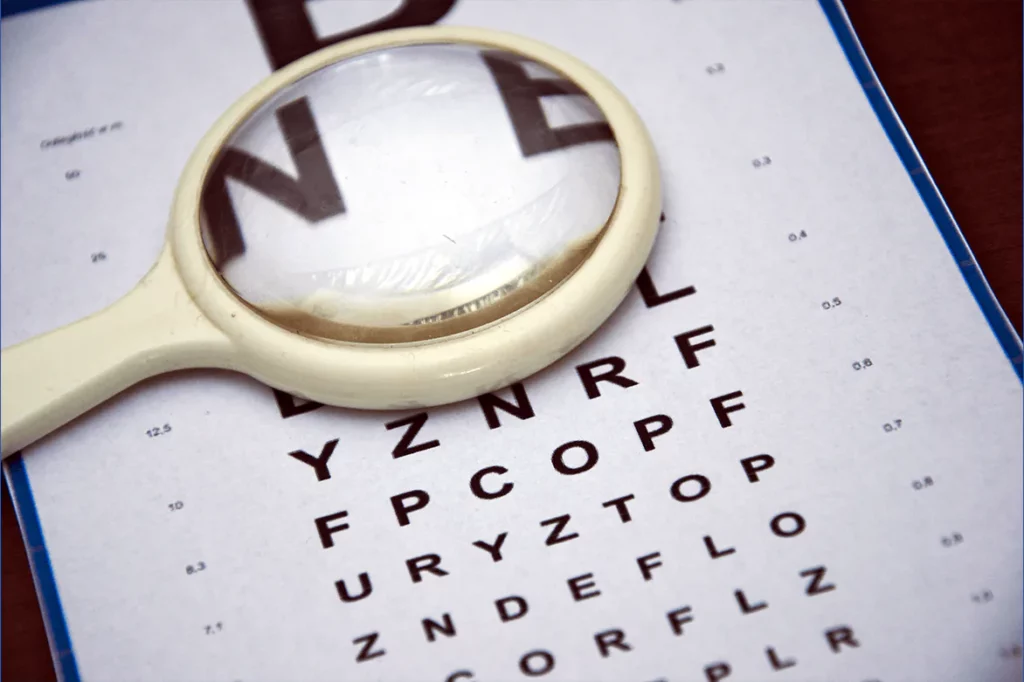
Causes of Retinal Damage
While aging is a common factor in retinal damage, other systemic conditions can also contribute to its development. Hypertension and diabetes, for example, can affect the blood vessels in the retina, leading to conditions such as diabetic retinopathy or hypertensive retinopathy. These conditions highlight the intricate connection between systemic health and ocular health, emphasizing the importance of comprehensive healthcare and regular eye examinations.
In addition to systemic conditions, trauma to the eye can also result in retinal damage. Blunt force trauma, penetrating injuries, or even excessive exposure to harmful light can all have detrimental effects on the delicate structures of the retina. Understanding the potential causes of retinal damage is crucial in implementing preventive measures and seeking timely treatment to preserve vision and overall eye health.
Identifying Early Symptoms of Retinal Damage
Early detection of retinal damage symptoms is essential for timely intervention and management. Being aware of these symptoms can help individuals seek appropriate medical attention and prevent the progression of the condition.
Retinal damage refers to any injury or deterioration that affects the retina, the light-sensitive tissue lining the back of the eye. The retina plays a crucial role in converting light into neural signals that are sent to the brain for visual recognition. Damage to the retina can result in various visual disturbances and, if left untreated, may lead to permanent vision loss. Read more about vision loss at https://hms.harvard.edu/news/vision-revision
Common Symptoms of Retinal Damage
Symptoms of retinal damage can vary depending on the underlying cause and the specific area of the retina affected. Some common symptoms include:
- Blurred or distorted vision
- Reduced color perception
- Floaters, which are dark spots or specks that appear to float in the field of vision
- Flashes of light
- Difficulty seeing at night
If you experience any of these symptoms, it is important to consult an eye care professional for a comprehensive examination.
Unusual Symptoms You Shouldn’t Ignore
While the above-mentioned symptoms are commonly associated with retinal damage, there are also some unusual symptoms that should not be ignored. These include sudden, painless vision loss, the appearance of a curtain-like shadow over the visual field, or a sudden increase in the number of floaters. These symptoms could indicate a more severe condition and require immediate medical attention.
Additionally, individuals with retinal damage may experience a gradual loss of peripheral vision or a sensation of seeing “wavy” or crooked lines. In some cases, patients may also report a sudden onset of double vision or a significant decrease in visual acuity. These symptoms can be indicative of underlying retinal issues that need to be addressed promptly to prevent further damage.
The Importance of Early Detection
Early detection of retinal damage can significantly impact the outcome and treatment options available. By identifying the condition at an early stage, healthcare professionals can implement appropriate interventions to prevent further damage and preserve vision.
Retinal damage, if left untreated, can lead to irreversible vision loss and even blindness. The retina is a crucial part of the eye responsible for capturing light and converting it into neural signals that are sent to the brain for visual recognition. Damage to the retina can disrupt this process, resulting in blurry vision, blind spots, or total loss of sight. Therefore, early detection is key to maintaining optimal eye health and preserving vision for as long as possible.
How Early Detection Can Prevent Further Damage
When retinal damage is detected early, treatment options such as medication, laser therapy, or surgery can be initiated promptly. These interventions aim to stabilize the condition, slow down the progression of damage, and prevent vision loss. Early detection also allows for the implementation of lifestyle modifications and preventive measures to maintain retinal health.
Furthermore, early intervention can improve the effectiveness of treatment and increase the likelihood of successful outcomes. For conditions like age-related macular degeneration or diabetic retinopathy, early detection and timely treatment can help preserve central vision and prevent severe complications that may result in permanent vision impairment.
The Role of Regular Eye Examinations
Regular eye examinations play a crucial role in the early detection of retinal damage. Eye care professionals can conduct comprehensive evaluations, including visual acuity tests, dilated eye exams, and imaging studies to assess the condition of the retina. It is recommended to schedule regular eye check-ups, especially for individuals at higher risk of retinal damage, such as those with a family history of retinal diseases or underlying health conditions like diabetes.
During an eye examination, the optometrist or ophthalmologist may also evaluate other aspects of eye health, such as intraocular pressure, optic nerve health, and overall eye function. These comprehensive assessments not only aid in the early detection of retinal issues but also help in the timely diagnosis and management of other eye conditions, ensuring overall visual well-being.
Prevention Strategies for Retinal Damage
While certain risk factors for retinal damage, such as age and genetics, cannot be controlled, there are proactive steps individuals can take to promote retinal health and reduce the risk of damage.
Retinal damage is a serious concern that can lead to vision impairment or even blindness if left untreated. The retina is a thin layer of tissue located at the back of the eye that is responsible for converting light into neural signals, which are then sent to the brain for visual recognition. Damage to the retina can occur due to various factors, including age-related macular degeneration, diabetic retinopathy, retinal detachment, and other eye conditions.
Lifestyle Changes for Retinal Health
Adopting a healthy lifestyle can have a positive impact on retinal health. This includes maintaining a balanced diet rich in antioxidants and nutrients, regular exercise, managing chronic conditions like diabetes and hypertension, avoiding smoking, and protecting the eyes from prolonged exposure to harmful UV rays by wearing sunglasses. To know more about prolonged exposure to harmful UV rays click here.
Foods rich in antioxidants, such as leafy greens, fish, nuts, and citrus fruits, can help protect the retina from oxidative stress and inflammation. Regular physical activity promotes overall health, including proper blood circulation to the eyes, which is essential for maintaining retinal function. Managing conditions like diabetes and hypertension is crucial, as uncontrolled high blood sugar and blood pressure levels can damage the blood vessels in the retina, leading to vision problems.
Medical Interventions for Prevention
In some cases, medical interventions may be recommended to prevent or slow down the progression of retinal damage. These interventions can include medications, such as anti-VEGF drugs, which help reduce abnormal blood vessel growth in the retina, or laser therapy to seal leaking blood vessels. Early detection and consultation with a healthcare professional can guide the appropriate preventive options based on individual circumstances.
Regular eye examinations are essential for detecting early signs of retinal damage or other eye conditions. An ophthalmologist can perform specialized tests, such as optical coherence tomography (OCT) or fluorescein angiography, to assess the health of the retina and identify any abnormalities. By monitoring the retina regularly, potential issues can be addressed promptly, potentially preventing irreversible damage and preserving vision.
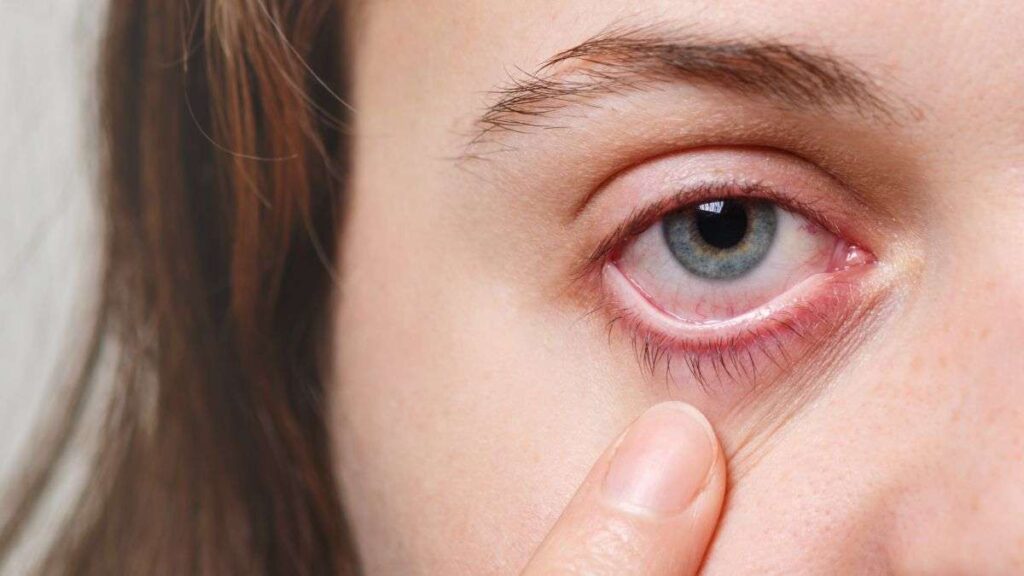
Navigating Treatment Options
When it comes to treating retinal damage, various options are available depending on the severity and underlying cause. Treatment plans are personalized to the individual’s condition and may involve a combination of non-surgical and surgical interventions.
Non-Surgical Treatments for Retinal Damage
Non-surgical treatments for retinal damage include medications, such as corticosteroids or anti-inflammatory drugs, which can help reduce inflammation and edema in the retina. These medications work by suppressing the immune response and reducing the release of inflammatory substances in the eye. By doing so, they can alleviate symptoms and slow down the progression of retinal damage.
Additionally, intraocular injections of anti-VEGF drugs can be administered to inhibit abnormal blood vessel growth and manage conditions like age-related macular degeneration (AMD) or diabetic retinopathy. These drugs target vascular endothelial growth factor (VEGF), a protein that promotes the growth of abnormal blood vessels in the retina. By blocking the action of VEGF, these injections can help prevent further damage to the retina and preserve vision.
Surgical Treatments for Advanced Cases
In advanced cases of retinal damage, surgical interventions may be necessary. Procedures like retinal detachment repair, vitrectomy, or macular hole surgery aim to restore or stabilize the retina’s structure and function. Retinal detachment repair involves reattaching the detached retina to the underlying tissue, while vitrectomy involves removing the vitreous gel from the eye and replacing it with a clear solution. Macular hole surgery, on the other hand, focuses on repairing a hole in the macula, the central part of the retina responsible for sharp, detailed vision.
These surgeries are typically performed by ophthalmologists specialized in retinal conditions. They require precision and expertise to ensure the best possible outcome for the patient. The surgeon will carefully assess the individual’s condition, determine the most appropriate surgical approach, and discuss the potential risks and benefits of the procedure.
With advancements in medical interventions, timely treatment options are available to manage retinal damage and preserve vision. However, it is important to remember that every case is unique, and treatment plans should be tailored to the individual’s specific needs. If you experience any symptoms or have concerns about your retinal health, consult an eye care professional for a comprehensive evaluation. They will be able to provide you with the necessary guidance and recommend the most suitable treatment options for your condition.
Read more.

